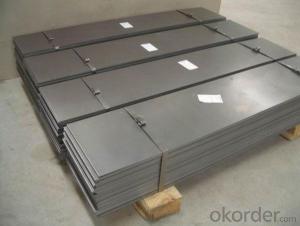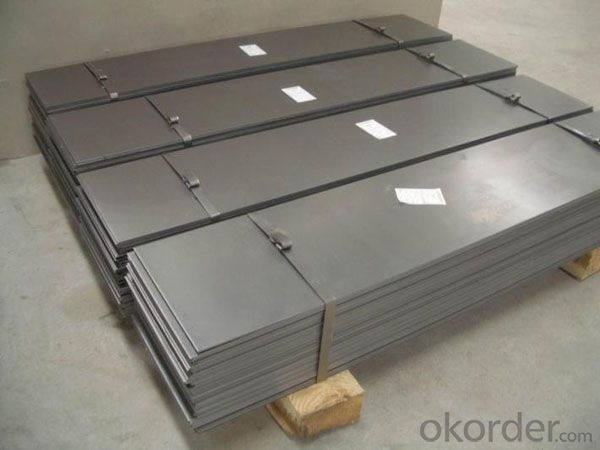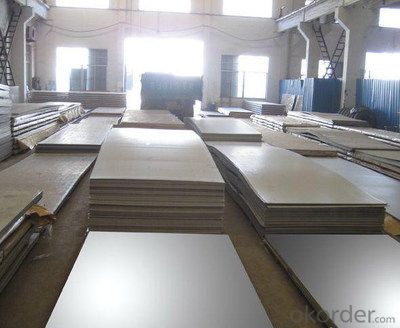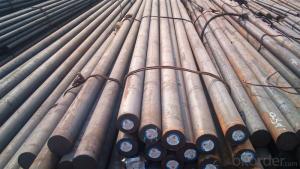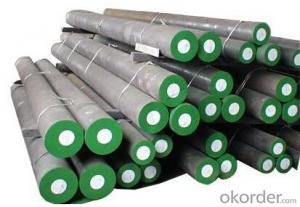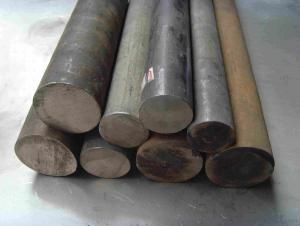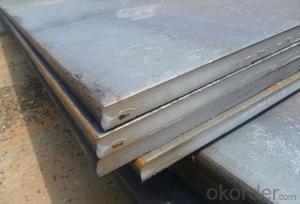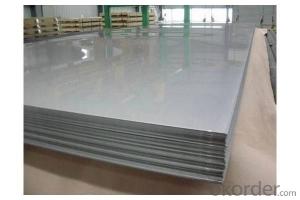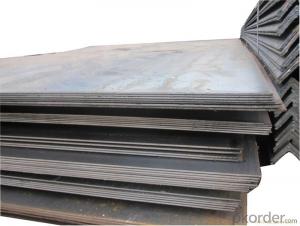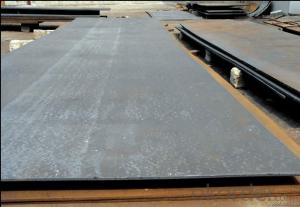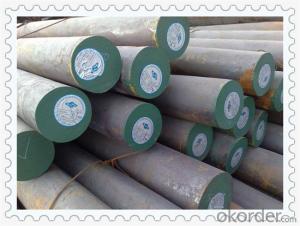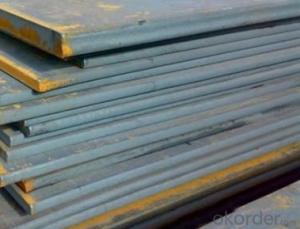Hot Rolled Mild Steel Plate A36 Carbon Steel Sheet
- Loading Port:
- China main port
- Payment Terms:
- TT OR LC
- Min Order Qty:
- 30 m.t.
- Supply Capability:
- 10000 m.t./month
OKorder Service Pledge
OKorder Financial Service
You Might Also Like
Specification
Product Information
Commodity | a36 hot rolled steel plate |
| Standard | AISI,ASTM,BS,DIN,GB,JIS |
| Grade | A36,AH36,A283 Gr.C,SS400,S235J1/S235J2/S235JR, S275J1/S275J2/S275JR,A516 Gr.60/A516 Gr.70,ST37-2 |
| Thickness | 1.5-200mm |
Width | 1000mm 1200mm 1250mm 1500mm 2000mm 2500mm 3000mm |
Length | 1-12m |
MOQ | 1 ton |
Surface | Clean,Coated ,Blasting and painting |
Payment terms | T/T or L/C |
Delivery terms | FOB/CFR/CIF |
Delivery time | Within 10-30 days after received the deposit or as client requirement |
Packing | Standard seaworthy export packing |
Shipping | length below 5.8m with 20' container,length below 11.8 with 40' container,or bulk shipping. |
Supply ability | 5000 ton per month |
Application | Widely used in petrochemistry,chemistry,electricity,boiler and vessel manufacture,and could be made into reactor,heat exchange facility,segregator,sphere vessel,oil tank,liquid gas storage tank, nuclear reactor press shell,turbine and other machines |
Product Show
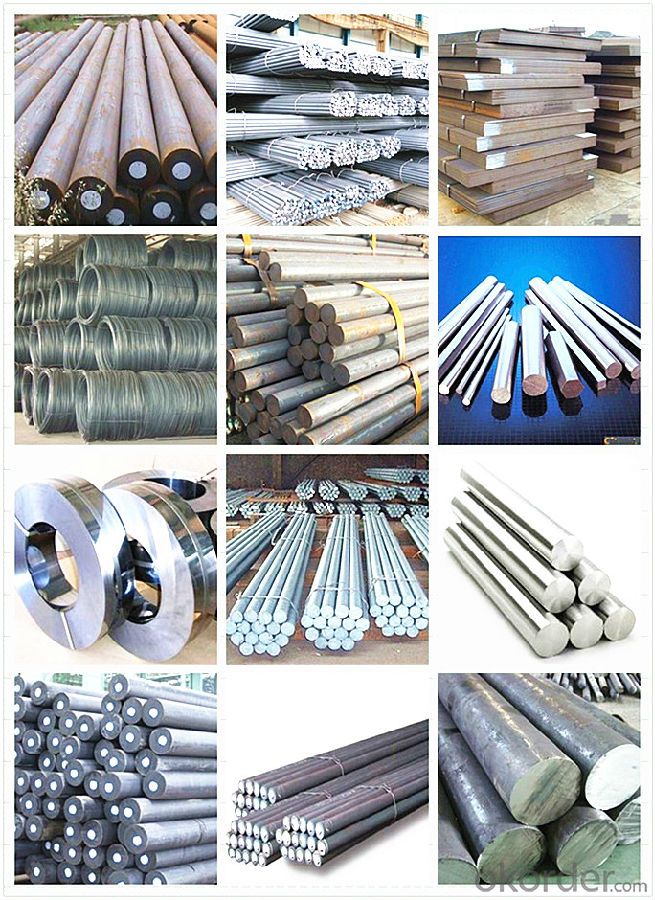
Workshop Show
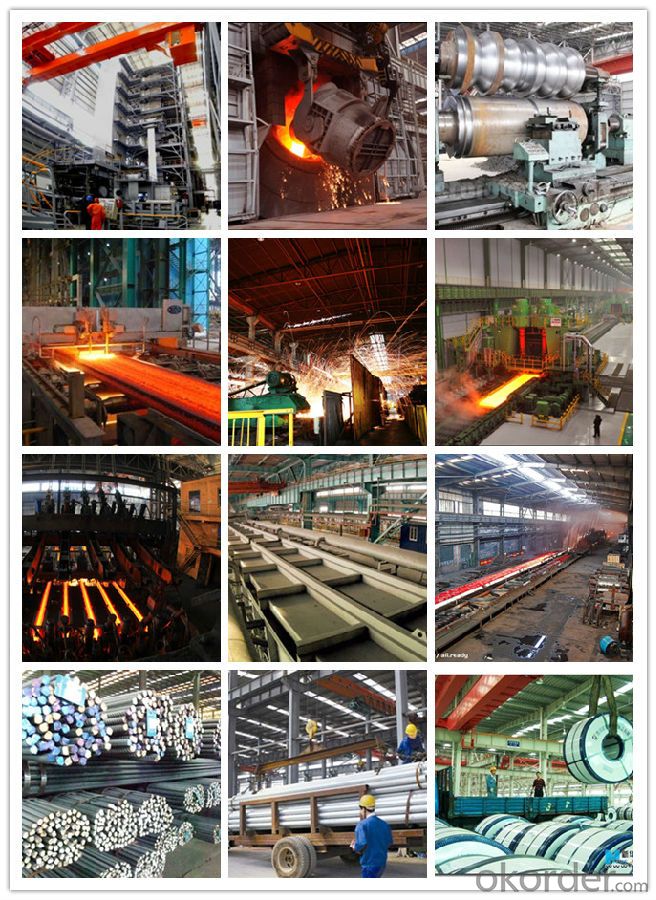
Shipping
1. FedEx/DHL/UPS/TNT for samples, Door-to-Door;
2. By Air or by Sea for batch goods, for FCL; Airport/ Port receiving;
3. Customers specifying freight forwarders or negotiable shipping methods!
Delivery Time: 3-7 days for samples; 5-25 days for batch goods.
Payment Terms
1.Payment: T/T, L/C, Western Union, MoneyGram,PayPal; 30% deposits; 70% balance before delivery.
2.MOQ: 1pcs
3.Warranty : 3 years
4.Package Informations: 1) EXPORT, In 20 feet (GW 25 ton) or 40 feet Container (GW 25 ton)
2)as customer's requirement
Why choose us?
(1) The leading exporter in China special steel industry.
(2) Large stocks for various sizes, fast delivery date.
(3) Good business relationship with China famous factories.
(4) More than 7 years steel exporting experience.
(5) Good after-sales service guarantee.
- Q: How does special steel contribute to the marine industry?
- Special steel plays a crucial role in the marine industry by offering exceptional strength, durability, and corrosion resistance, making it ideal for various marine applications. It is extensively used in the construction of ships, submarines, offshore platforms, and other marine structures, ensuring their structural integrity and safety. Additionally, special steel is used in manufacturing propellers and other critical components, enhancing efficiency and performance. Overall, special steel contributes significantly to the marine industry by providing reliable and high-quality materials that withstand harsh marine environments and support the growth and advancement of the sector.
- Q: What are the different heat treatment techniques used for special steel?
- There are several heat treatment techniques used for special steel, including annealing, quenching and tempering, case hardening, and precipitation hardening. Each technique is designed to enhance specific properties of the steel, such as hardness, toughness, and durability, depending on the intended application.
- Q: What are the different grades of special steel?
- Special steel is classified into various grades based on its chemical composition, physical properties, and intended use. Some common grades include tool steel, stainless steel, alloy steel, and high-speed steel. These grades offer unique characteristics and are utilized in different industries such as manufacturing, construction, automotive, and aerospace.
- Q: How is wear-resistant stainless steel used in the production of cutting tools?
- Wear-resistant stainless steel is used in the production of cutting tools due to its exceptional strength and resistance to wear and corrosion. This type of stainless steel is specifically designed to withstand high levels of stress and friction, making it ideal for tools that require cutting, shearing, or shaping. The wear resistance of stainless steel ensures that the cutting edges of these tools remain sharp and durable over extended periods of use, resulting in increased productivity and longer tool lifespan.
- Q: Can special steel be recycled?
- Indeed, special steel, also referred to as alloy steel, can indeed be recycled. This variant of steel is enriched with additional elements like chromium, nickel, or molybdenum to enhance its properties. These supplementary elements do not impede the steel's recyclability. The recycling process for special steel is akin to that of regular steel. Sources like scrap metal yards, demolition sites, or end-of-life products serve as collection points for the steel. Subsequently, it undergoes processing to eliminate impurities, is sorted, and finally shredded into smaller fragments. These shreds are then melted in a furnace, resulting in molten steel that can be cast into new products or employed as raw material for manufacturing processes. Recycling special steel boasts various advantages. Firstly, it aids in conserving natural resources by diminishing the need for fresh steel production. Secondly, it curtails energy consumption and the emission of greenhouse gases typically associated with steel manufacturing. Furthermore, recycling steel reduces waste generation and fosters a circular economy by utilizing existing materials. Ultimately, special steel, much like any other steel variety, can be efficiently recycled, thus making a meaningful contribution to environmental sustainability and resource conservation.
- Q: How does special steel perform in hydrogen embrittlement conditions?
- Special steel, known by other names like high-strength steel or alloy steel, possesses remarkable resistance to conditions that cause hydrogen embrittlement. Hydrogen embrittlement occurs when hydrogen atoms infiltrate the metallic lattice structure, causing it to become brittle and prone to fractures when subjected to stress. Given their distinct composition and microstructure, special steels are engineered to endure harsh environments, including those susceptible to hydrogen embrittlement. These steels often contain alloying elements such as nickel, chromium, and molybdenum, which enhance their ability to withstand cracking induced by hydrogen. The presence of these alloying elements in special steel facilitates the development of protective oxide layers on the steel's surface. These layers act as a barrier, preventing hydrogen atoms from diffusing into the metal matrix. Moreover, these elements can capture and bind hydrogen atoms, reducing their mobility and minimizing their negative impact on the steel's mechanical properties. Furthermore, special steels frequently undergo diverse heat treatments and processing techniques, like quenching and tempering, to further enhance their resistance to hydrogen embrittlement. These processes refine the steel's microstructure, enhancing its strength, toughness, and ductility while minimizing the risk of hydrogen-induced cracking. In general, special steel outperforms standard steels in hydrogen embrittlement conditions. Its unique composition, microstructure, and processing techniques make it highly resilient to the detrimental effects of hydrogen atoms. As a result, special steel ensures the structural integrity and reliability of components and structures operating in hydrogen-rich environments.
- Q: How does special steel contribute to the manufacturing of precision components?
- The manufacturing of precision components heavily relies on special steel, which offers a wide range of desirable properties necessary for achieving high levels of accuracy and reliability. To begin with, special steel is renowned for its remarkable strength and durability. This enables precision components to endure the immense stress and load they may encounter during operation. By utilizing special steel, manufacturers can create precision components that can withstand intense forces without warping, deforming, or breaking, ensuring long-lasting performance and reliability. Furthermore, special steel demonstrates excellent resistance to wear. Components manufactured from special steel can endure friction, abrasion, and wear caused by continuous use or contact with other materials. This is especially crucial for precision components, as even the slightest wear or deformation can significantly impact their functionality and accuracy. By employing special steel, manufacturers can guarantee that precision components maintain their shape and integrity, resulting in superior performance and longevity. Moreover, special steel offers outstanding machinability. Its composition and properties make it easier to cut, shape, and form into complex geometries, allowing manufacturers to produce intricate precision components with tight tolerances. This improved machinability facilitates the production of components with precise dimensions, ensuring accuracy and consistency in the final product. Additionally, special steel exhibits excellent resistance to corrosion. Precision components are frequently exposed to harsh environments, chemicals, or moisture, which can lead to corrosion and degradation. However, special steel's corrosion resistance properties help prevent rusting and corrosion, ensuring that precision components remain functional and reliable throughout their lifespan. Lastly, special steel provides thermal stability and resistance to high temperatures. Precision components may come into contact with extreme heat or experience rapid temperature changes during operation. The ability of special steel to withstand these conditions without compromising its strength or dimensional stability is crucial in ensuring the performance and accuracy of precision components in demanding applications. In conclusion, special steel plays a vital role in the manufacturing of precision components by offering exceptional strength, wear resistance, machinability, corrosion resistance, and thermal stability. These properties enable manufacturers to produce precise, high-quality components that meet the stringent requirements of various industries, including aerospace, automotive, electronics, and medical devices.
- Q: What are the different forms of special steel?
- There are several different forms of special steel, including stainless steel, tool steel, high-speed steel, alloy steel, and carbon steel. Each form has its own unique properties and characteristics that make it suitable for specific applications.
- Q: Can special steel be used in the renewable energy sector?
- Yes, special steel can be used in the renewable energy sector. Special steel offers high strength, corrosion resistance, and durability, making it suitable for various applications such as wind turbines, solar panels, and hydropower systems. It can help enhance the efficiency and longevity of renewable energy infrastructure, thereby supporting the transition to a more sustainable energy future.
- Q: What are the main applications of special steel in the oil and gas equipment?
- Special steel is widely used in the oil and gas equipment industry due to its exceptional properties such as high strength, corrosion resistance, and heat resistance. It is primarily used in applications such as drilling rigs, pipelines, valves, pumps, and offshore platforms. Special steel ensures the durability and reliability of these equipment in harsh environments, thereby enhancing the overall efficiency and safety of oil and gas operations.
Send your message to us
Hot Rolled Mild Steel Plate A36 Carbon Steel Sheet
- Loading Port:
- China main port
- Payment Terms:
- TT OR LC
- Min Order Qty:
- 30 m.t.
- Supply Capability:
- 10000 m.t./month
OKorder Service Pledge
OKorder Financial Service
Similar products
Hot products
Hot Searches
Related keywords
